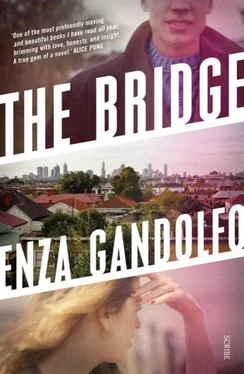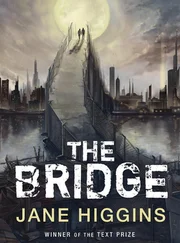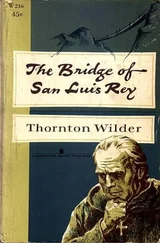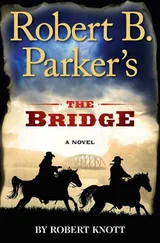When the train arrived at the Geelong station, she was relieved to be able to move. At the bus terminal, several vehicles were waiting. She took the St Leonards bus. Portarlington was a vague childhood memory from a holiday with Grandpa Tom when she was four. They’d stayed in an old caravan and fished off the pier. They’d eaten chips on the beach, surrounded by squawking gulls; she’d been frightened at first, but he’d shown her how to chase them away. Mandy hadn’t come with them — she didn’t remember why. Probably working. She remembered the smell of his tobacco floating in through the open door of the caravan. The overly sweet hot chocolate he made her at night. Paddling barefoot along the water’s edge, her feet freezing. Sitting next to him on an old deck chair outside the caravan and counting the stars. Giggling at his silly stories.
By the time they arrived at the Portarlington shopping centre, it was raining heavily. Jo raced across the road to shelter under a row of shop awnings, but even with her back pressed flat up against the supermarket window, she was getting wet.
‘Torrential, this rain. But it’ll be great for my garden,’ announced one of several older women lined up next to her. She reminded Jo of a too-cheerful politician wanting to convince her constituents that recessions, unemployment, and increasing taxes all had a silver lining.
‘Yes, we need it,’ responded an old man, leaning on a walking stick. Beside him there was another elderly woman sitting on her electric scooter, and a couple with their shopping and a scruffy terrier. Jo couldn’t see another person under sixty.
The woman kept talking about the importance of a good soak for the garden, the amount of rain it took before moisture penetrated to the roots, and the pleasure it was to see all the trees, especially the older trees, refreshed.
‘We might need the rain,’ the woman in the scooter said with a hoarse laugh, ‘but I don’t have to be grateful when it comes, especially when it’s bucketing down.’
Sheets of rain were closing in on them. From the road, the bay was covered in a fine mist; there was no horizon, no city, no mountains. The pier had dissolved. The town was adrift.
Jo was weighed down with a desire to curl up and sleep, knees to chin, head buried in the folds of her arms. Since the accident she rarely slept, and when she did it was broken, shattered by nightmares, the nights more tiring than the days, and no relief in sight. But standing under the canopy surrounded by people her grandmother’s age, the possibility of sleep, its inevitability, was seductive.
‘Are you alright, love?’ The woman with the garden inched a little closer and placed her hand on Jo’s arm.
‘Sorry?’
‘You look pale, like you might faint.’
‘Oh no, I’m fine. I never faint,’ Jo replied.
‘My husband’s gone to get the car. Can we give you a lift somewhere?’ She had grey hair and wrinkles, but she wore jeans and heavy work boots. Her skin was tanned and weathered, and she reminded Jo of the colonial women in Australian movies, the ones who lived in isolated rural shacks and chopped their own wood. She might’ve been the same age as Mary, but was as unlike Jo’s grandmother as two women could be — no make-up, no lipstick, no earrings, no pastels.
‘No, not sure where I’m staying.’
‘Just arrived, have you? Are you looking for somewhere to stay, love?’
‘No… umm, yes.’ Jo had been driven by adrenaline all morning. By the inkling of an idea, to run, and then to run to Portarlington. But she had no plans, no sense at all as to what she might do now that she’d arrived.
‘We live next door to a hostel, it’s a backpackers’. They have a dorm and you can walk to the beach and into town. They’ll have a bed for sure. It’s early, not the tourist season yet. We can give you a lift, save you getting wet.’
‘I’m not… I haven’t decided —’
‘It’s nice here. You young travellers prefer the ocean coast, Lorne and Anglesea, but they’re much more expensive, and the natives aren’t as friendly.’ She laughed.
‘Hear, hear,’ said the man with the walking stick.
‘It’ll get busier here soon, love, and there’ll be work in the cafés and the restaurants.’
In the woman’s presence, Jo was transformed into a young, carefree traveller looking for work, and the sleepiness passed. She straightened up and met the woman’s gaze, returning her smile. ‘A job, yes,’ Jo said. ‘Any leads would be great.’
‘My son’s the manager at The George,’ said the old man. ‘It’s there.’ He used his walking stick to point down the street, but through the teeming rain, it was impossible to make out the individual buildings. ‘It’s a restaurant and a motel. One of his waitresses up and left. She fell in love with a young bloke from Canada, and now they’re gone north together.’
‘Was that Bella?’ the woman asked.
‘Yes, yes.’
‘Lovely girl, but a little rash.’
‘More than a little rash,’ the man said. ‘She only knew the Canadian guy for a week and was packed and gone.’ He turned back to Jo. ‘Have you done any waitressing?’
‘Yes,’ Jo said, feeling herself swept up in a current that was out of her control. Did she want to stay in Portarlington? Did she want to get a job? Was she allowed to leave Yarraville? She’d have to check the conditions of her bail with Sarah. She didn’t want the police to come looking for her.
‘Well, why don’t you go down to The George and tell them I sent you. Bob’s my name.’ The man held out his hand for Jo to shake.
‘Thanks.’ Jo took his weathered hand. His grip was surprisingly strong.
‘Your name, love?’ the woman asked when Jo didn’t introduce herself.
Jo didn’t want to tell them her name. She didn’t want to be Jo Neilson the murderer, the girl who killed her best friend, the person who was on her way to prison. She wanted to be the carefree traveller, this new girl the woman had conjured up.
‘My name’s Ashleigh,’ Jo said. The words spilling out before she could stop them. Before she could push them back.
‘Well, Ashleigh, I’m Susan, Sue. My husband, Laurie, and I, we’ll drop you off at the hostel. You can book in and then come and have a bite of lunch with us. After lunch we’ll drive you back up to town.’
‘Oh, but I can’t…’
‘Sure you can. We love young company.’
Laurie drove a silver Holden Commodore. Before Jo could say anything else, she was sitting in the back seat of the car. The seats were black leather. There was a strong new-car smell, a cocktail of glues and plastics. It reminded Jo of Ash’s parents’ four-wheel drive. That was the first new car she’d ever ridden in, and the smell was overpowering. Within minutes she was nauseous, and Rae had to stop the car so Jo could jump out and throw up. When Jo passed her driving test and Mary gave her the keys to Pop Jack’s car, Ash gave Jo new-car-smell spray. It was a joke, and the label, handmade by Ash, covered a normal lavender air freshener.
‘Laurie,’ Sue said, ‘this is Ashleigh.’ At the sound of Ash’s name, Jo cringed. Was it too late to take it back? Too late to tell them it wasn’t her name? Too late to stop the car and get out, go back to the city?
‘Hi, Ash,’ Laurie said.
Startled, Jo jumped in quickly. ‘Ashleigh,’ she said. ‘I don’t like being called Ash.’
‘Sorry. Bad habit I have of shortening everything.’ He wasn’t what she’d expected; he seemed too frail to be Sue’s husband. Laurie wore a crisp white shirt that called out for a tie and jacket, and frameless glasses that sat too low on his nose. His hands shook even as they gripped the steering wheel. He was the sort of man you expected to find behind a desk: a bank manager or an insurance agent. When Mary and Jack had fought, Mary would sometimes say, I should’ve married a gentleman . Laurie was exactly the kind of elderly gentleman Jo imagined her grandmother meant. He wasn’t at all like Pop Jack, who only ever wore a suit to funerals and weddings but was never comfortable in them.
Читать дальше












